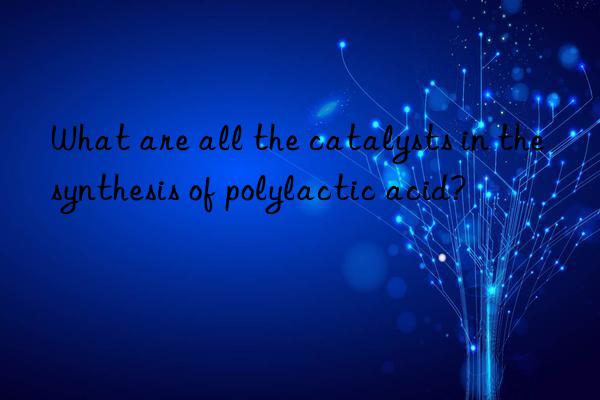
The catalysts used in the synthesis of PLA are mainly as follows:
Tin catalysts: This is a class of catalysts commonly used in the synthesis of PLA, including tin, stannous chloride and stannous octanoate. Among them, stannous octanoate is considered to be the best catalyst. Under certain conditions, PLA synthesised using stannous octanoate as catalyst has excellent properties, such as no oxidation, discolouration, and the viscosity average molecular weight can reach a high level.
Metal catalysts: Metal catalysts also play an important role in the synthesis of PLA. These catalysts can promote the condensation reaction of lactic acid monomers, so as to effectively form PLA chains.
In addition to the common catalysts mentioned above, there are some other types of catalysts that may be used in the synthesis of PLA, but the exact catalyst to be used depends on factors such as the synthesis method, the reaction conditions, and the properties of the desired PLA. Therefore, when selecting a catalyst, various factors need to be considered in order to achieve the best synthesis results.
Please note that the selection and use of catalysts should follow the relevant safety regulations and operating procedures to ensure the safety and reliability of the experimental process. Meanwhile, with the continuous development of science and technology, new types of catalysts are emerging, so it may also be necessary to pay attention to the latest research results and technological advances in practical applications.
Recommended Related Reading:
Dabco NE1060/Non-emissive polyurethane catalyst

 微信扫一扫打赏
微信扫一扫打赏

